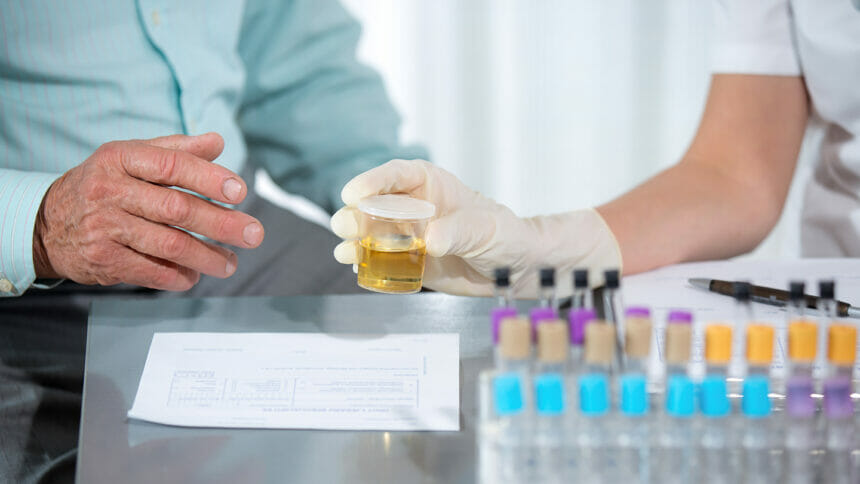
A new drug cocktail successfully targeted and treated urinary tract infections (UTIs) caused by Escherichia coli, according to results from the first stage of a phase 2 trial. The results set the stage for a larger trial to confirm the efficacy of the treatment.
Findings were published Aug. 9 in The Lancet Infectious Diseases.
The cocktail was enhanced using CRISPR technology, which modifies DNA, and targets E. coli.
The first part of the ELIMINATE trial defined a dosing schedule for LBP-EC01, a six-bacteriophage cocktail engineered with a CRISPR-Cas3 construct that targets E. coli in people who have uncomplicated UTIs. The second part of the trial will target more people to see if findings can be replicated.
In the first part of the study, researchers assigned 39 people to receive three different combinations of intra-urethral and intravenous doses of the cocktail. They also took daily oral doses of the antibiotic trimethoprim-sulfamethoxazole.
The primary goal in the first part of the study was measuring how much LBP-EC01 was in the urine and blood during and after treatment.
Two days of treatment with intra-urethral LBP-EC01 and three days of concurrent intravenous LBP-EC01 along with oral trimethoprim-sulfamethoxazole twice daily was well tolerated and showed consistent bioavailability in urine and blood with a positive effect. The level of E. coli in urine declined within four hours of treatment and was maintained at the day 10 test-of-cure evaluation in 16 patients. All the participants’ symptoms had resolved by day 10.
“These results, although preliminary, suggest that the natural propensity for bacteriophages and bacteria to establish an equilibrium can be disrupted, in favor of bacterial eradication, through selecting the appropriate indication (i.e., UTI) and dosing regimens and routes of administration that enable high direct exposure and using cocktails of bacteriophages, including ones that are genetically enhanced,” the team wrote.



